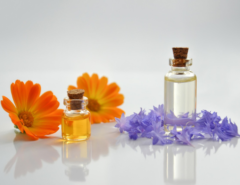Travel plans bring excitement and change, but they can also bring new risks. Poisonings can happen anywhere – even in hotels, rental homes, or while visiting family. New places, different routines, and common traveling mistakes can all increase the risk of poisonings. Let’s review some information to help you keep your trip safe, healthy, and worry-free.
Save the Nationwide Number for Poison Centers
Whether you’re traveling near or far, assistance from a poison expert is always available. By calling 1-800-222-1222, you can reach any of the 53 poison centers across the United States and U.S territories. Specialists are available 24 hours a day, 7 days a week, 365 days a year, including holidays.
Be sure to save the Poison Help number in your phone before you travel. You never know when or where you might need it. Encourage friends and family to save it as well, so they’re prepared wherever they go.
Increased Risk
When traveling, the risk of poisoning increases. Daily routines are disrupted, and you’re often in unfamiliar environments. Medicines, cleaning products, and other potentially harmful items may not be stored the way you and your family are used to. Items that are normally out of reach at home might be within easy access in a hotel, rental home, or someone else’s home.
Even though trips are meant for relaxation, it’s important to supervise children at all times. A poisoning can happen quickly, and kids are often more curious and likely to explore spaces they don’t know. Having at least one adult watching them can help prevent potential poisonings.
Packing Tips
When you’re packing for a trip, keep all medicines in their original, labeled containers. This is the safest way to prevent confusion and medicine mishaps. Avoid putting loose pills in plastic baggies or transferring them into different containers. Doing so can be risky for several reasons:
- You might accidentally take the wrong medication.
- Pets or children could easily access the medicine.
- Children associate baggies with candy or treats and may help themselves.
- You won’t have information about the active ingredients or strength.
- You won’t have the dosing instructions.
If you use an EpiPen or other medicine for severe allergies, be sure to pack it and keep all medicines somewhere easily accessible, but still safely stored, during your trip.
Review tips for flying with medicine and medicine storage once you arrive at your destination on our previously published blog.
Safe Storage
It’s important to continue safe storage practices while you’re traveling. Follow these tips to ensure items are securely stored:
- Medicines, personal care products, and cleaning products should be stored up, away, and out of sight.
- Bring a lock box, keep medicines and other potentially harmful products in a secure cabinet, or make sure your suitcase stays closed tightly.
- If you are hosting, offer your guests a safe place to store their items – up, away, and out of sight.
- If you are visiting somewhere, it is good practice to take a look around and move potential poisons to a safe storage place before allowing children and pets to explore the area.
Medicine Safety
While packing your medicine to travel, follow the above tips and remember to:
- Pack medicines in their original, labeled containers.
- Bring extra prescription medicines, in case of travel delays.
- Consult with your health care provider or pharmacist if you are traveling through several time zones to develop a specific plan to adjust the timing and dosage of your medicines.
Medicines can be stored in daily pill minders/boxes for ease of access. While these are a good tool for medicine organization, the average daily pill minder is not child-resistant. Therefore, if you are using one of these tools, you must still take the time to store it up, away, and out of sight.
Food Safety
If you’re traveling with food, it’s important to follow safe food storage practices. Keep cold foods cold and hot foods hot to prevent the growth of harmful bacteria. Store cold items in a cooler or ice bath, and use insulated containers or bags to keep hot foods warm. Remember – food should not be left at room temperature for more than two hours. After two hours, the risk of food poisoning increases.
The above tips are useful any time you travel and serve as a good reminder as we enter the busy holiday travel season. We wish you a happy and healthy holiday season and remind you that our poison experts are available 24/7/365 at 1-800-222-1222.





Leave a Reply